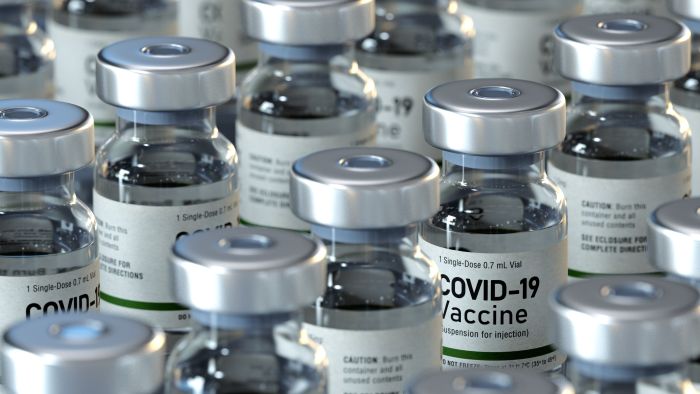Individuals who, despite having been vaccinated against COVID-19, develop the disease and are hospitalized are less likely to go to an intensive care unit (ICU), more likely to have a shorter hospital stay, and less likely to die in the hospital than individuals hospitalized for COVID who were never vaccinated, according to a national study from the Centers for Disease Control and Prevention (CDC)’s VISION Network.
These findings confirm that vaccination, while not 100 percent effective in preventing COVID, has reduced disease severity during the periods of Delta and Omicron dominance.
Time from hospital admission to discharge was 15 to 20 percent shorter for vaccinated patients than unvaccinated patients.
During the period of Delta predominance, vaccinated patients were half as likely as unvaccinated patients to be admitted to the ICU during their hospital stay. During Omicron predominance, vaccinated patients were 30 percent less likely than unvaccinated patients to be admitted to the ICU.
Slightly more than 10 percent of those hospitalized for COVID-19 died while in the hospital. Nearly 81 percent of those who died were unvaccinated.
“This is one of the first studies to compare vaccine status of adults who were so sick with COVID that they were hospitalized,” said study co-author Brian Dixon, PhD, MPA, of the Regenstrief Institute and Indiana University Richard M. Fairbanks School of Public Health. “The bottom line is that even with breakthrough cases – disease occurring in spite of vaccination -- you were better off having been vaccinated and boosted as vaccine effectiveness waned, than not. The hospital course of stay was less severe, and you are less likely to go to the ICU and less likely to die.”
Vaccine effectiveness against severe COVID requiring hospitalization declined less than vaccine effectiveness against infection only (mild disease). Other VISION Network studies have shown that booster shots restore effectiveness.
Breakthrough COVID cases admitted to a hospital tended to be in older individuals and those with additional medical conditions.
Compared with vaccinated individuals, unvaccinated individuals in the study were generally younger and healthier, with a lower percentage having any underlying medical conditions such as cardiovascular disease or diabetes, but a higher percentage having underlying respiratory conditions.
“We know that certain racial and ethnic groups, younger adults, those living in rural areas, those with low socioeconomic status, and uninsured persons in the U.S. tend to be less likely to be vaccinated,” said study co-author Shaun Grannis, MD, MS, of the Regenstrief Institute and Indiana University School of Medicine. “Hopefully this study will encourage those who have been hesitant to get vaccinated and boosted to reduce their risk of severe disease and death. Vaccination benefits individuals, families, communities and the healthcare system.”
The CDC collaborated with seven U.S. healthcare systems plus the Regenstrief Institute, to create the VISION network to assess COVID-19 vaccine effectiveness. In addition to Regenstrief Institute, other members are Columbia University Irving Medical Center, HealthPartners, Intermountain Healthcare, Kaiser Permanente Northern California, Kaiser Permanente Northwest, University of Colorado and Paso Del Norte Health Information Exchange (PHIX). Regenstrief contributes data and expertise to the VISION Network.
The study, published in Journal of Infectious Diseases, was funded by the CDC.
Source: Regenstrief Institute
